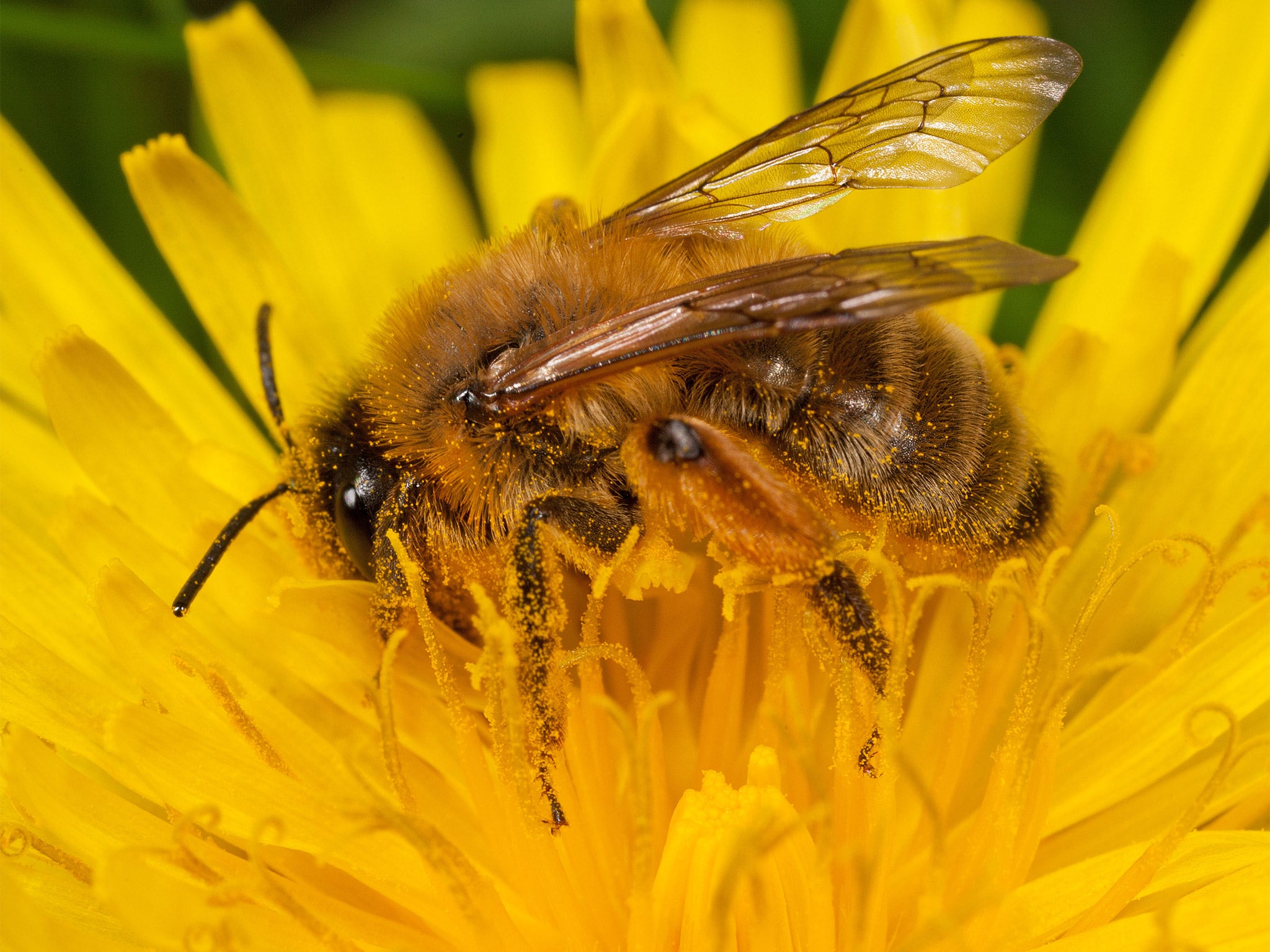Higher temperatures may result in fewer bees, scientists claim
Climate change the latest threat to vital insects

Your support helps us to tell the story
From reproductive rights to climate change to Big Tech, The Independent is on the ground when the story is developing. Whether it's investigating the financials of Elon Musk's pro-Trump PAC or producing our latest documentary, 'The A Word', which shines a light on the American women fighting for reproductive rights, we know how important it is to parse out the facts from the messaging.
At such a critical moment in US history, we need reporters on the ground. Your donation allows us to keep sending journalists to speak to both sides of the story.
The Independent is trusted by Americans across the entire political spectrum. And unlike many other quality news outlets, we choose not to lock Americans out of our reporting and analysis with paywalls. We believe quality journalism should be available to everyone, paid for by those who can afford it.
Your support makes all the difference.The dramatic demise of Britain’s bee population has been variously linked to everything from pesticides, habitat loss and even parasitic mites.
Climate change can now be added to the list of threats, after new research revealed that an increase in global temperature could be disrupting the “synchronisation” that has evolved over millennia between bees and the plants they pollinate.
In the week that the Environment Secretary, Liz Truss, called on gardeners to boost bee populations by mowing their lawns less often, researchers have found that the temperature increase resulting from climate change has brought forward the flowering date of the early spider orchid along with the “first flight” of newborn solitary bees.
But the changes in timing have affected the orchids and the bees differently, putting them out of sync with each other, according to a new report by the University of East Anglia (UEA), which warns its findings could have widespread implications for bees – whose numbers have declined by 40 per cent in the UK in the past five decades – as well as plants and pollinators more broadly.
This is the first research to find a clear example of the potential for climate change to disrupt critical relationships between species that have been mutually evolved.
“Under normal circumstances, male bees are deceived into inadvertently pollinating orchid flowers. There will be progressive disruption of pollination systems with climatic warming, which could lead to the breakdown of co-evolved interactions between species because they either respond to different seasonal cues, or to the same cues at different rates,” lead the researcher, Professor Anthony Davy, said.
The first flight of the female solitary bee is brought forward by 15 days for every 1C temperature rise, while the males begin flying nine days earlier, the researchers found. Meanwhile, the orchid starts flowering six days earlier for each 1C increase. As a very general rule, both tend to happen in late March.
The early spider orchid – or Ophrys sphegodes – is particularly susceptible to climate change because it is pollinated almost exclusively by the solitary bee (Andrena nigroaenea). However, other kinds of plants, bees and pollinators – that rely on a variety of species for pollination – could also be threatened by climate change, Professor Davy said.
This is because the more out-of-sync pollinators and plants become, the more difficult it will be for each to find opportunities for pollination – potentially threatening a wide variety of plants, including crops of seeds or fruits, most of which depend on pollination.
Dr Karen Robbirt, also from the UEA, said: “We have shown that plants and their pollinators show different responses to climate change, and that warming will widen the timeline between bees and flowers emerging… This could have severe implications for crop productivity.”
The report did not name any crops under threat, although it will raise fears that popular foods such as apples and pears could be affected.
The research, “Potential Disruption of Pollination in Sexually Deceptive Orchid by Climate Change”, is published today in the journal Current Biology. It was led by the UEA, in collaboration with the Royal Botanic Gardens at Kew, the University of Kent and the University of Sussex. Researchers studied long-term trends in historical bee flight records dating back to 1848.
Join our commenting forum
Join thought-provoking conversations, follow other Independent readers and see their replies
Comments